


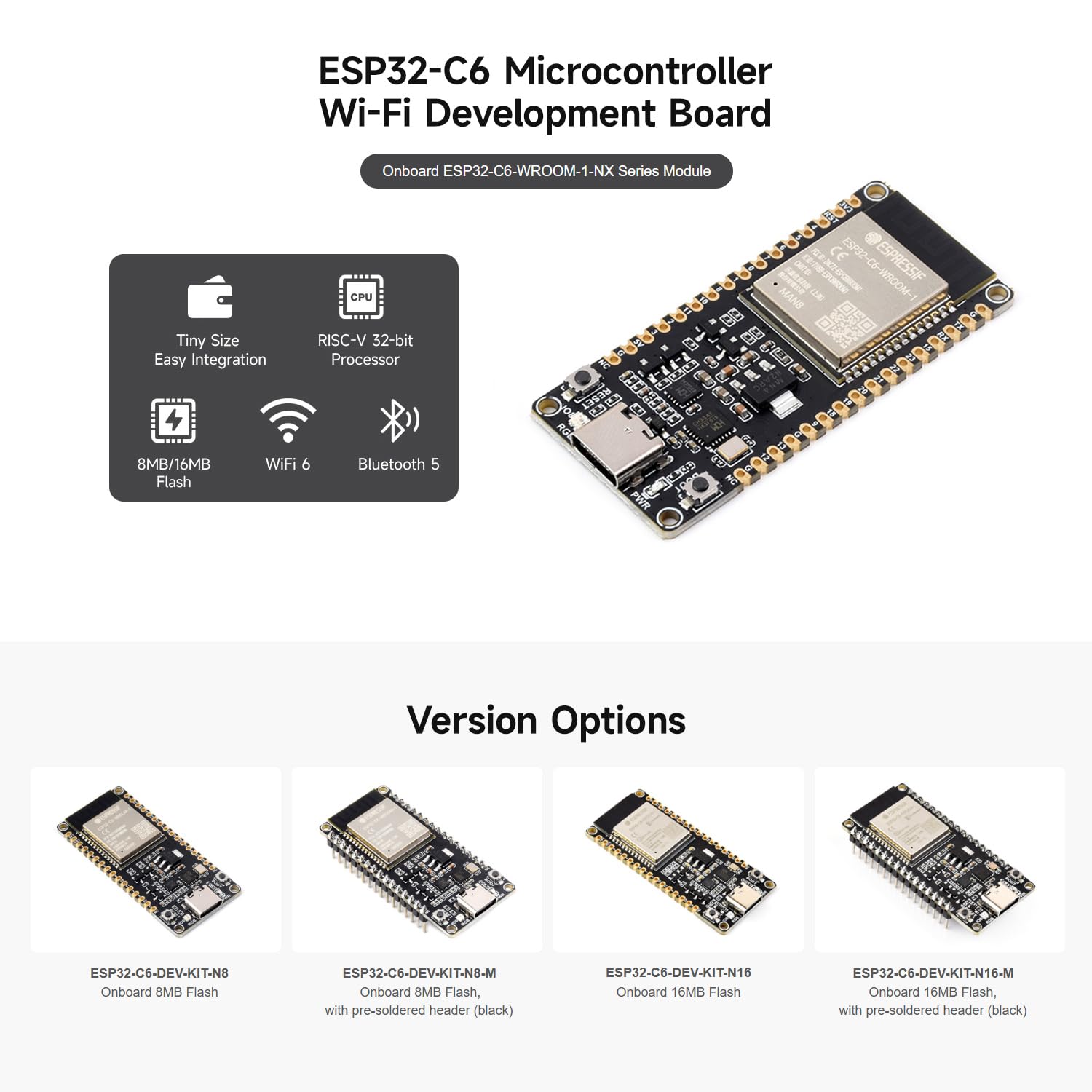
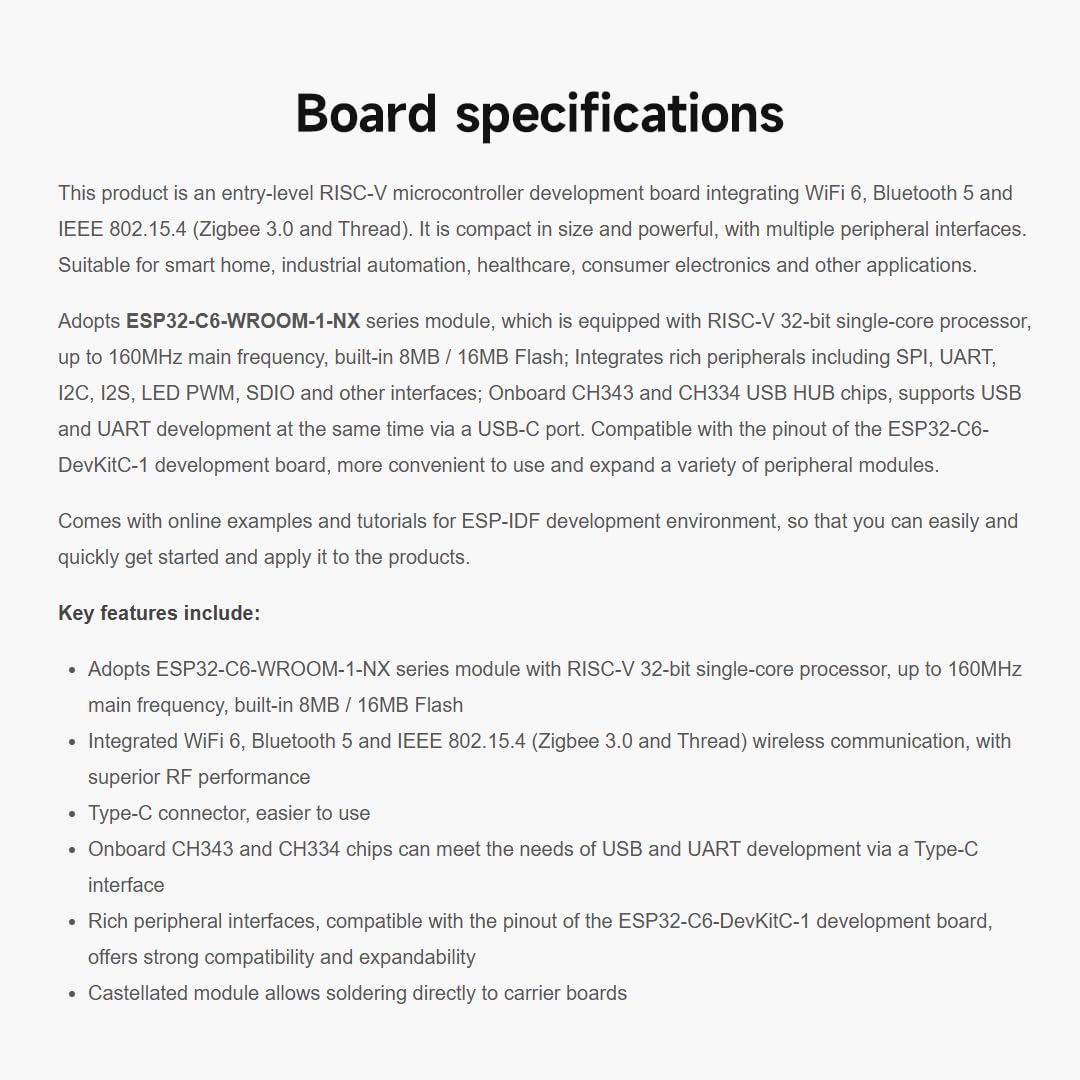
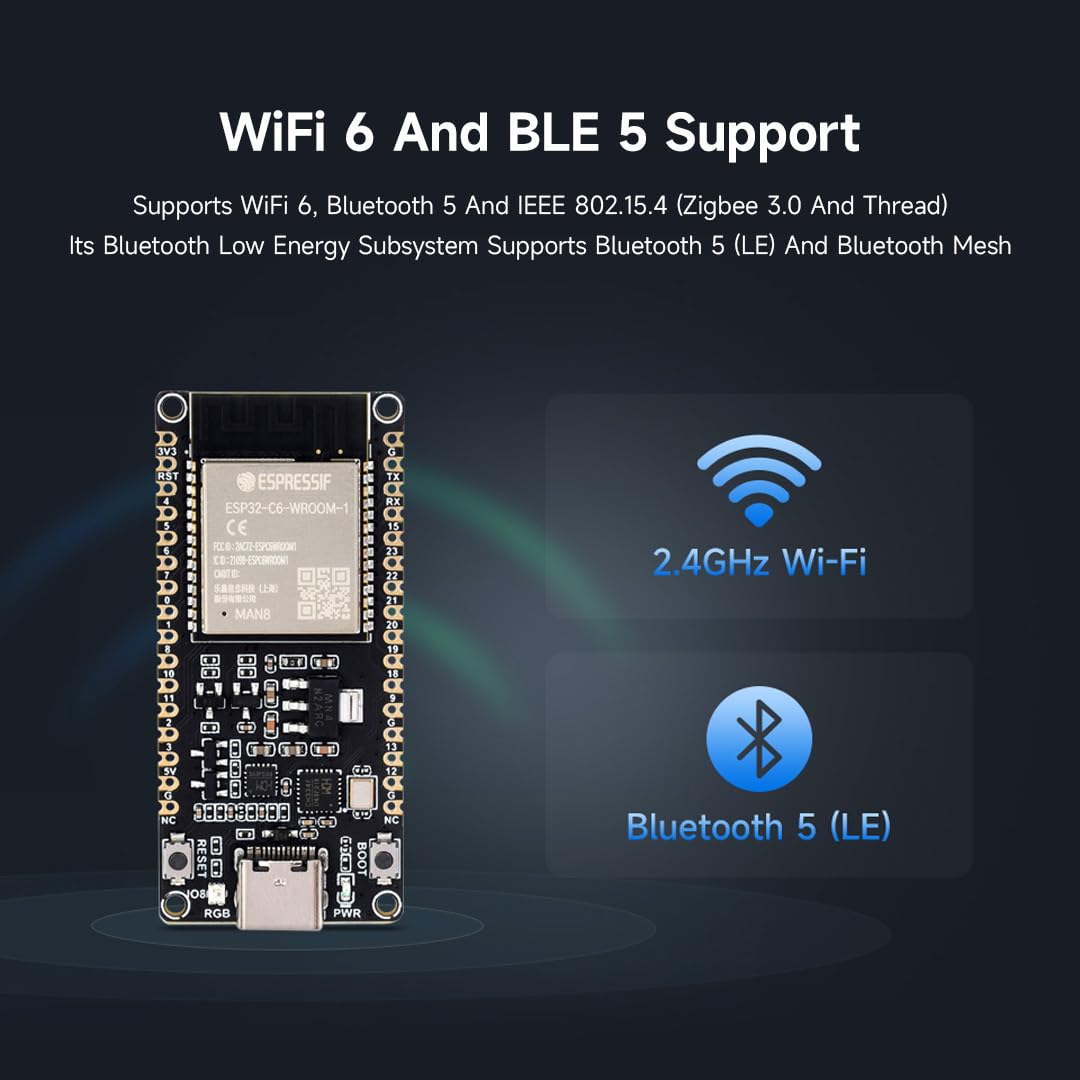
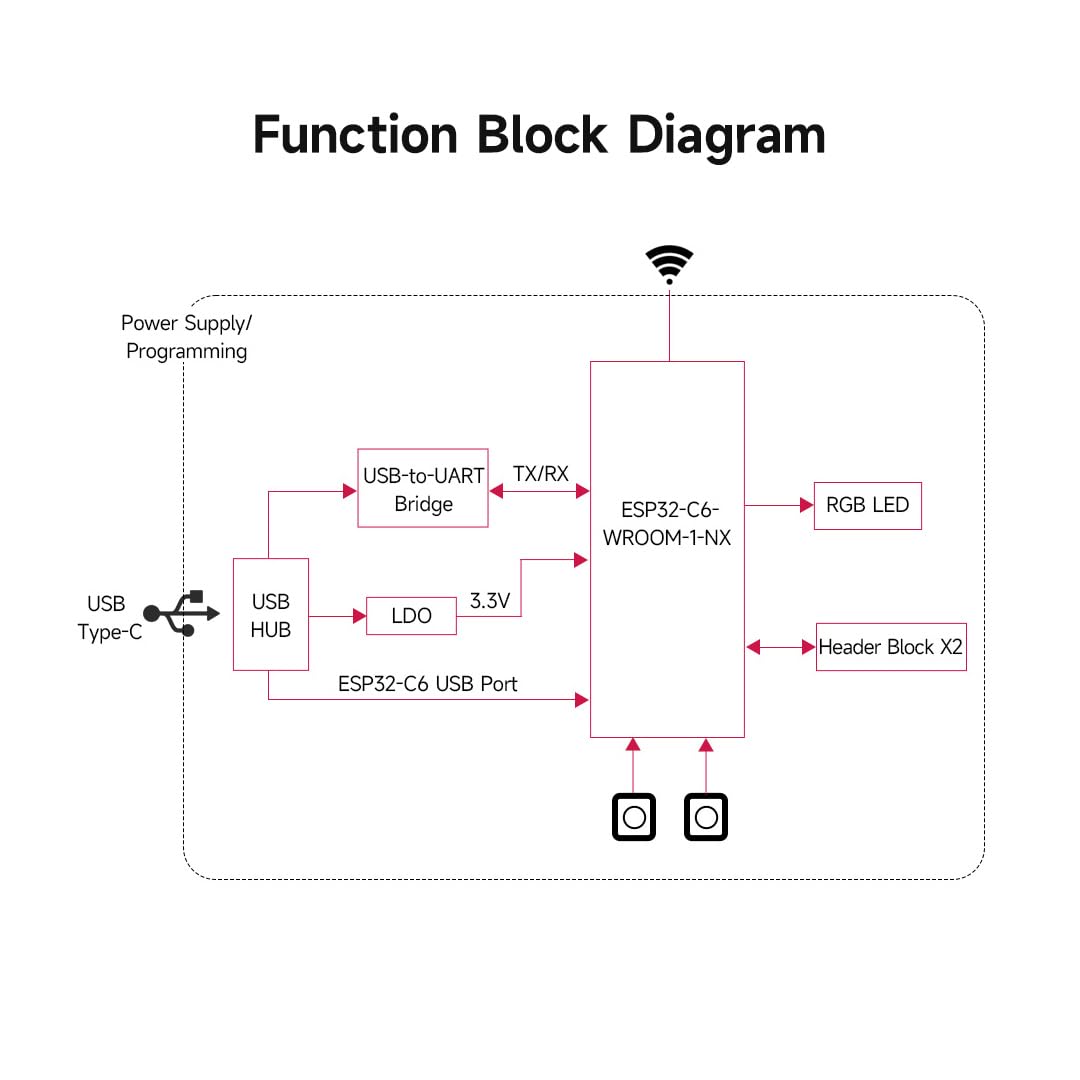
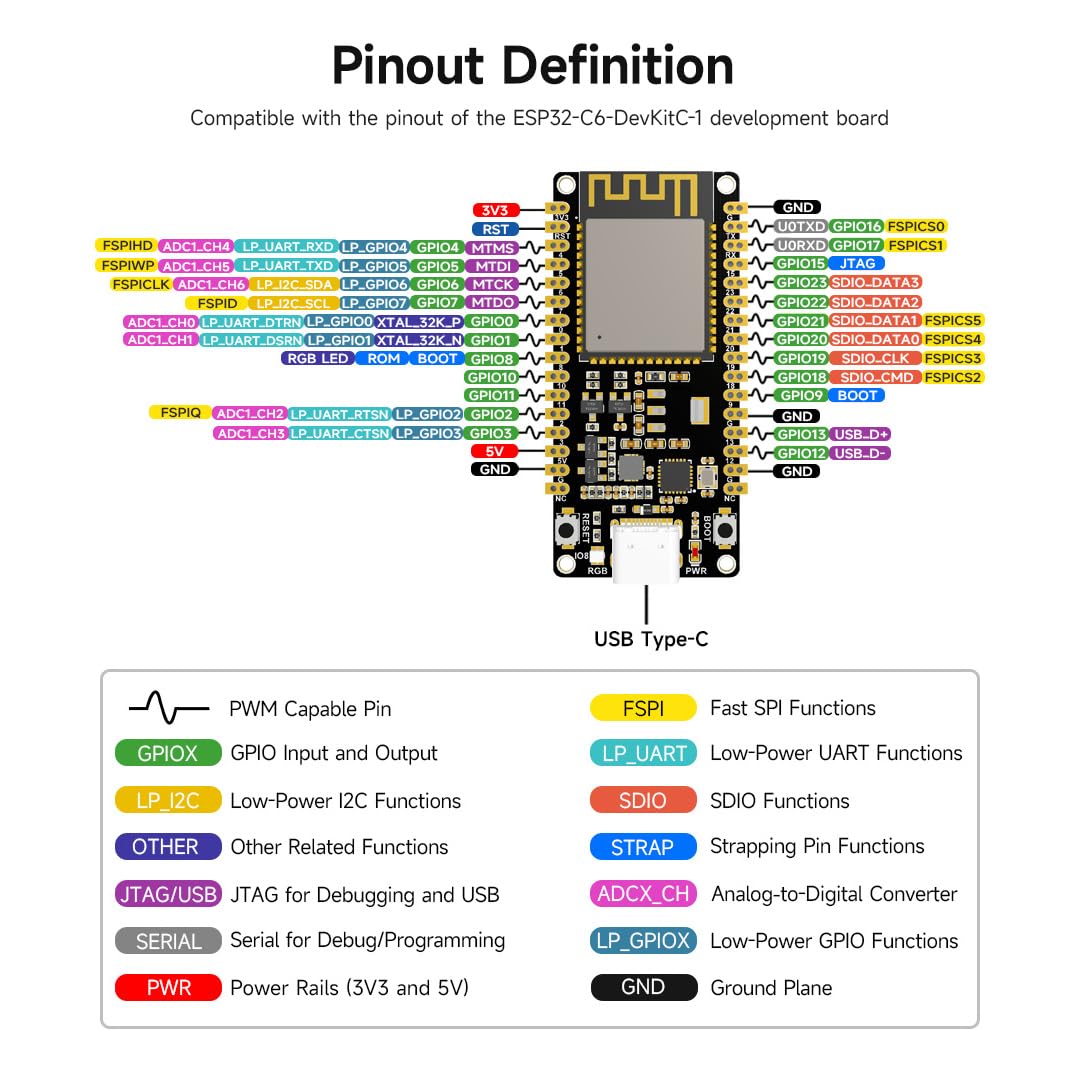
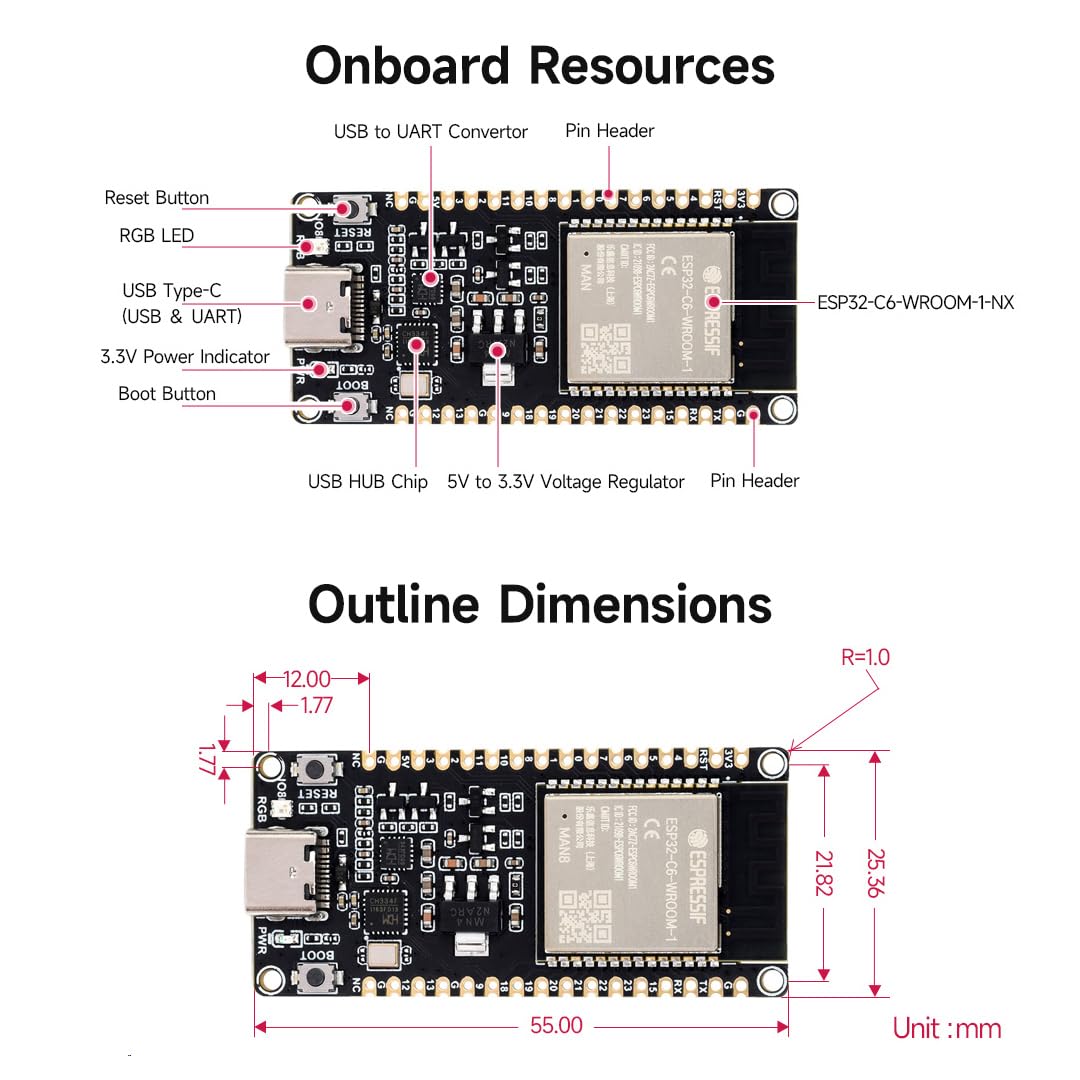

🚀 Power your smart innovations with the future-ready ESP32-C6!
The Waveshare ESP32-C6 Microcontroller Development Board features a 160MHz RISC-V single-core processor, integrated WiFi 6, Bluetooth 5, and Zigbee 3.0 wireless protocols, plus a convenient Type-C USB interface. Designed for professional developers, it offers rich peripheral compatibility and a castellated module for direct soldering, making it ideal for cutting-edge IoT and wireless communication projects.





| Brand | Waveshare |
| Product Dimensions | 5.49 x 2.54 x 0.99 cm; 18 g |
| Item model number | ESP32-C6-DEV-KIT-N8-M |
| Manufacturer | Waveshare |
| Processor Count | 1 |
| Memory Clock Speed | 1 MHz |
| Wireless Type | 802.11ax |
| Are Batteries Included | No |
| Item Weight | 18 g |
| Guaranteed software updates until | unknown |
J**.
No issues, very nice
Great little board, I used this for an 802.15.4 project and it performed very well.
Trustpilot
2 days ago
3 days ago